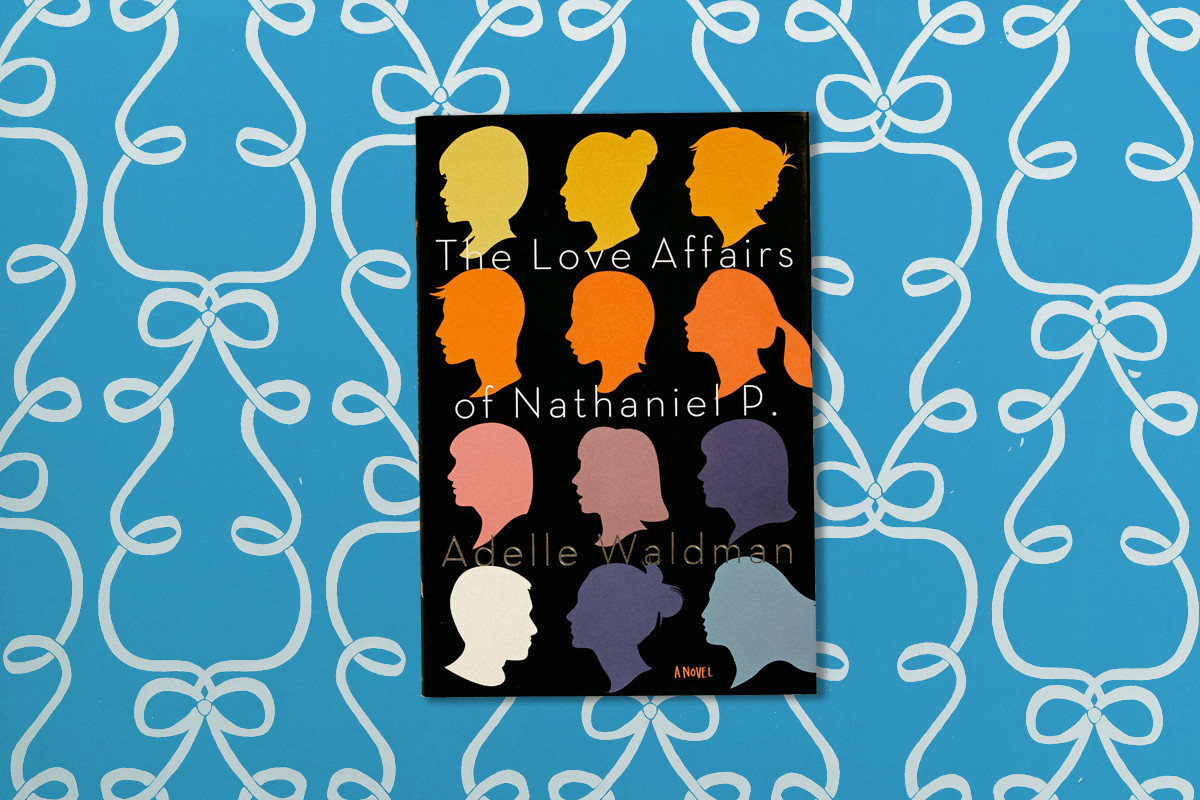TO READ · 09/20/2013
Books We Love: The Love Affairs of Nathaniel P.
For close-readers of text messages and fans of Edith Wharton alike, Adelle Waldman’s debut novel, The Love Affairs of Nathaniel P., might seem like a custom-written book. It follows the romantic misadventures of Nate, a New York-based young writer and serial heartbreaker. The prose is humane, hilarious, absorbing.
We spoke to Adelle about writing from the perspective of a man, faux pas, and her top five fictional jerks.
You’ve said that you started writing the book from a female perspective and then switched. But your protagonist is so convincing. Did you enlist any male consultants?
Well, I didn’t start writing this exact book from a woman’s perspective, but I did, at various points, try to write about my experiences dating more directly—which meant from the perspective of a woman. And I never got very far. I think writing from the male point-of-view had a lot of advantages. For one thing, I was able to see the character more objectively because he was so clearly not me. For another, I think it turned out to be a surprisingly effective way of getting at the woman’s experience. The reader is in a lot of ways like the woman who dates Nate—he or she is trying to figure out what to make of him, how much to trust him. And I think that’s one of the hard things about dating a guy like Nate. If he were all bad, he wouldn’t cause women nearly as much pain; it’s because he has good qualities that we come to care about such men.
As for male consultants, yes—while writing the book, I gave chapters to a male writer friend and my husband, who is also a writer (and who was my boyfriend when I started writing the book but has since become my husband).
Thankfully, I’ve been in a relationship for the entire time I spent writing the book so I haven’t had any icky dating experiences since I wrote it.
Any other favorite books written from the point-of-view of a character the opposite gender as the writer?
I love Madame Bovary. I admire Flaubert’s ability to be merciless without ever resorting to caricature or satire, and I think he nails so much of what is petty and vain and vulgar about Madame Bovary without letting us forget that she is also capable of real emotion and feels real pain. Which to me is the human condition in a nutshell: we suck, we are banal, egocentric, self-seeking creatures, and yet we also suffer and deserve sympathy.
I also love Anna Karenina and, jumping ahead a century, Mating by Norman Rush. Recently, I think the novelist Maggie Shipstead did a fantastic job writing from the male perspective in her terrific novel, Seating Arrangements.
Does a young adulthood spent in New York City affect the way one thinks about love?
Several years ago, when I was 29 and single, I spent six months in Baltimore, where I grew up. It hit me that the dynamics between men and women were really different there. There is a certain gender imbalance in cities like New York—and probably L.A. and San Francisco—that influences dating.
In Baltimore, there was a pervasive sense that women were scarce. Men vied for women’s attention, not just in terms of wanting to hookup, but they actually seemed to compete to show themselves to be good boyfriend material. The women I got to know during that period took for granted that they could have fun dating for a while and then, as soon as they decided they were ready, snap their fingers, and find a guy they wanted to get serious with. I think this is similar to how many men feel in New York.
Top five fictional jerks?
Lovelace from Samuel Richardson’s Clarissa. Dashing, handsome and vain—so vain!—he’s the absolute best and worst and most infuriating.
Willoughby from Jane Austen’s Sense and Sensibility. The handsome ladies’ man definitely steals this show—certainly he’s more charismatic than poor Colonel Brandon—even if Elinor essentially nails him at the end of the book.
Tito Melema from George Eliot’s Romola. Nevermind that this book is set in 15th century Florence—this is is one convincingly drawn bad husband, of a sort that is no less familiar today. Melema is smart, charming and doesn’t intend to do harm, but he’s selfish and he mostly just wants to feel good. That’s more than enough to do a whole lot of damage to the people around you.
Gilbert Osmond from Henry James’s Portrait of a Lady. One chilling—and chilly—dude.
Charles Highway, from The Rachel Papers by Martin Amis. This modern-day bad boyfriend has a lot in common with Nate. He’s smart and just awkward and insecure enough to be endearing. He lays it on really thick at first, but then once he’s won the girl, he quickly loses interest. The frightening part is that none of it is insincere. He really is that capable of becoming disenchanted with a woman he adores—as soon as she commits that worst of all possible sins: returning his affection. Amis did a brilliant job capturing this guy.
Please confess your most serious faux pas.
These days I often worry that I’ve been talking about things related to my book too much. I worry my friends will begin to think I’m very self-involved.






